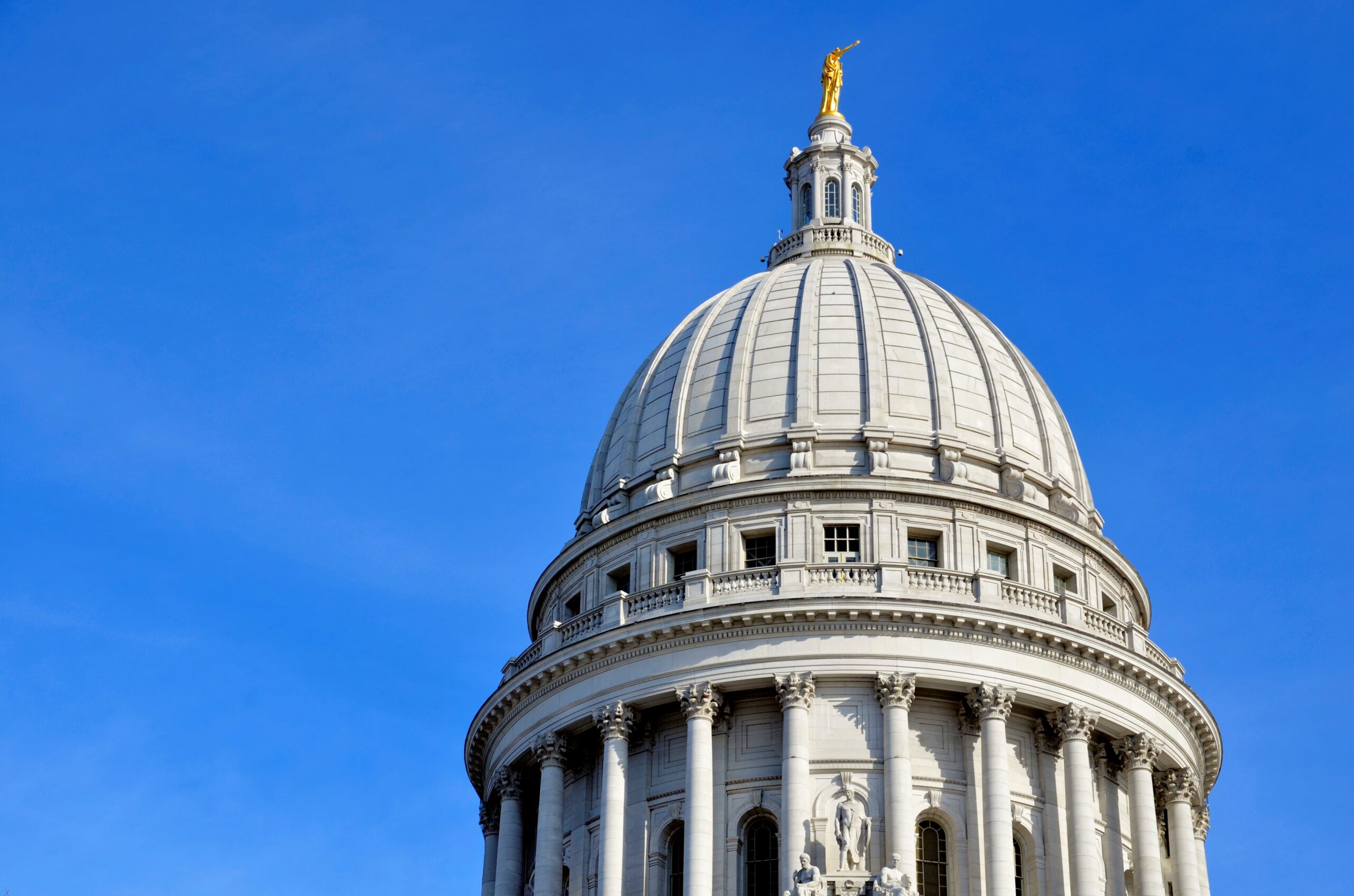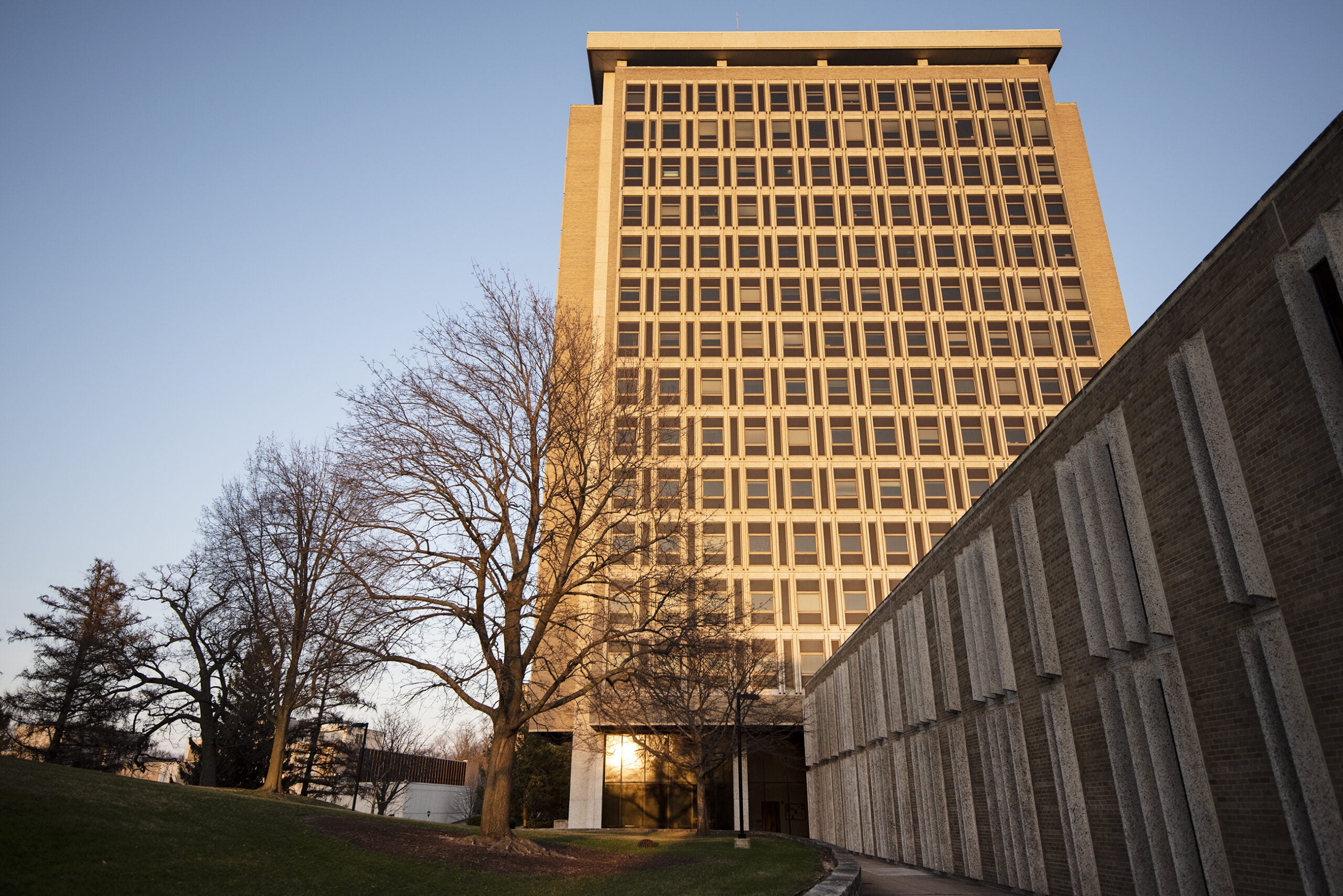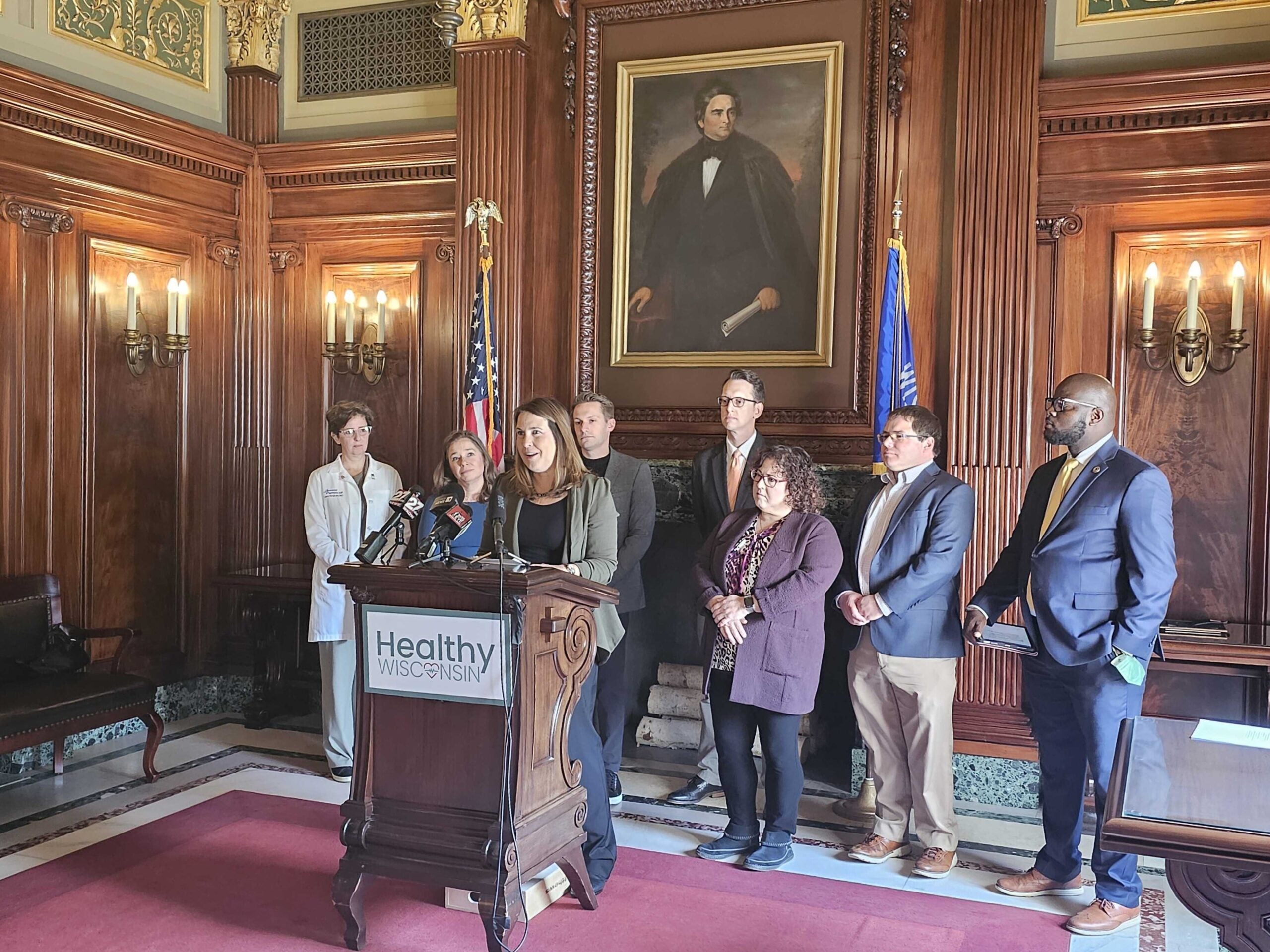Republican state lawmakers moved forward Tuesday with their own spending plan for Medicaid in Wisconsin after rejecting Gov. Tony Evers’ proposal to expand it.
The Legislature’s budget committee voted 11-4 along party lines to approve Republicans’ plan for Medicaid. Republicans voted in favor and Democrats against.
The GOP-backed plan increases state spending by about $588 million on Medicaid and related health care programs, but spends about $187 million less than the governor called for.
Stay informed on the latest news
Sign up for WPR’s email newsletter.
Republicans zeroed out funding for an early intervention program for children with developmental disabilities and a program aimed at curbing tobacco use, among others.
They also decreased spending from Evers’ plan by about $26 million for county mental health crisis intervention services and $39 million for dental care for low-income individuals.
Nursing Home, Personal Care Worker Increases
However, Republicans did find some areas of agreement with the governor.
Their plan includes increases larger than those requested by Evers for Medicaid reimbursements for nursing homes and personal care workers.
Committee co-chair Alberta Darling, R-River Hills, said lawmakers heard a lot about the state’s low payment rate for personal care workers, as well as the number of nursing homes closing across the state, at public budget committee hearings earlier this year.
“This is a budget that we really listened to the people,” Darling said to reporters before the vote. “People told us we need to save our nursing homes, we need to invest in our personal care workers.”
The spending plan increases the hourly rate for personal care workers from $16.73 to $18.24 an hour starting July 1, 2019.
The governor’s proposal would have increased that payment rate to $16.98 on Jan. 1, 2020, and to $17.24 on July 1, 2020.
The GOP plan also increases funding for nursing homes by $37 million, bumping reimbursement rates by about 6 percent over the next two years.
“There’s nothing more threatening than thinking that the nursing home where your parents are is thinking about closing, or the fact that you want to keep your parents in the home and can’t get personal care workers there because there’s not enough payment for those,” Darling said. “This is very personal stuff.”
The governor’s proposal would have increased nursing home reimbursement rates by 1.5 percent in 2019-20 and an additional 1.5 percent in 2020-21.
Republicans also voted to approve the governor’s recommendation to fund intake, application and screening costs for children’s long-term care services. That would allow the state to eliminate a waiting list for a program that serves children with disabilities.
Child Care Subsidy Increase
The GOP-backed plan also includes an increase for Wisconsin Shares, a child care subsidy program for low-income, working families.
Under the approved plan, the state would increase reimbursement rates for child care providers by $56.5 million, which would bump rates to be within 15 percent of the federal government’s recommended 75th percentile rate.
“It’s a major investment, and it should be,” said Rep. Mark Born, R-Beaver Dam.
The governor’s proposal would have provided about $24 million more.
Rep. Chris Taylor, D-Madison, urged Republicans to approve the governor’s proposal.
“We have really lagged behind other states,” Taylor said. “There’s no reason not to get where the governor is.”
The Republican plan also increased foster care reimbursement rates by 4 percent in 2020. The Democratic plan would have increased rates by 2 percent in 2020 and 2 percent in 2021. The GOP plan would spend more in state money, but accept less federal money. Overall, it represents $26,500 more than the governor called for.
Overall, the Republican budget for the state Department of Children and Families, which oversees programs including foster care and other child welfare programs, increases spending by $125.5 million. That’s $65.5 million less than the governor asked for in his budget proposal.
Rejection Of Medicaid Expansion
Republicans voted to remove Evers’ proposed Medicaid expansion from the budget last month, but Democrats used Tuesday’s debate on Medicaid spending to revisit the issue.
“It’s a cruel choice for the people we could cover and it’s a fiscally irresponsible choice,” Taylor said at a press conference before the committee meeting.
Rep. Evan Goyke, D-Milwaukee, pointed out Evers campaigned heavily on accepting the expansion.
“The people of Wisconsin knew what they were buying — they want the Medicaid expansion,” Goyke said.
Under the governor’s plan, Wisconsin would accept more federal money to extend Medicaid, called BadgerCare in Wisconsin, to people who earn up to 138 percent of the federal poverty level.
That would provide coverage to about 80,000 more individuals, according to the Evers administration, and save the state about $320 million over two years.
Evers has said he will “fight like hell” for the expansion, despite Republican opposition.
The governor’s proposal would use the $320 million freed up under his plan to invest in other programs that come with matching or additional federal funds. Evers’ office said that would bring up to $1.6 billion in federal money into the state.
Sen. Jon Erpenbach, D-Middleton, said rejecting those additional funds essentially means Wisconsin taxpayers aren’t seeing the benefits they pay for on their federal tax bill.
“We’re leaving hundreds of millions of WIsconsinites’ dollars out in Washington, D.C.,” Erpenbach said. “We’re paying twice for something we’re getting once.”
Erpenbach said Democrats have been working to push individual Republicans to “keep an open mind” regarding the expansion. He criticized GOP members for following party leadership lockstep.
Republicans have been steadfast in their opposition to the Medicaid expansion for several years.
Former Gov. Scott Walker first rejected the federal Medicaid expansion in 2014. He argued expanding Medicaid could come with unexpected costs for the state down the road and would increase insurance costs in the private market.
Republicans lawmakers have carried on that argument during this debate.
Assembly Speaker Robin Vos, R-Rochester, said at the state Republican Party convention last month that he and his colleagues would accept the expansion “over their dead bodies.”
According to the Kaiser Family Foundation, Wisconsin is one of 14 states that hasn’t taken the additional federal money.
Wisconsin Public Radio, © Copyright 2024, Board of Regents of the University of Wisconsin System and Wisconsin Educational Communications Board.






